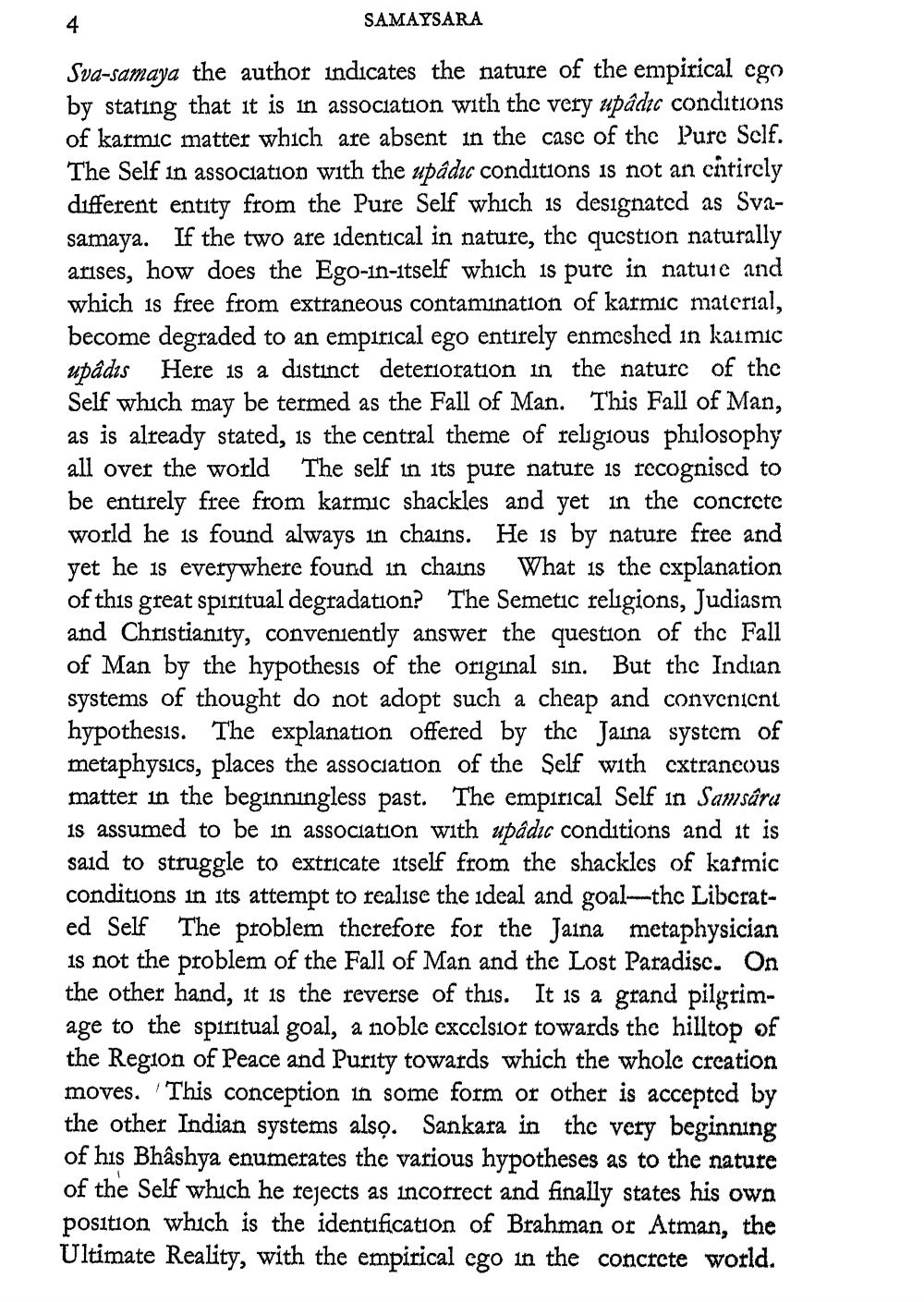________________
SAMAYSARA
Sva-samaya the author indicates the nature of the empirical cgo by stating that it is in association with the very upâdıc conditions of karmic matter which are absent in the case of the Purc Self. The Self in association with the upâdıc conditions is not an cntirely different entity from the Pure Self which is designated as Svasamaya. If the two are identical in nature, the question naturally arises, how does the Ego-in-itself which is pure in nature and which is free from extraneous contamination of karmic material, become degraded to an empirical ego entirely enmeshed in kaimic upâdıs Here is a distinct deterioration in the nature of the Self which may be termed as the Fall of Man. This Fall of Man, as is already stated, is the central theme of religious philosophy all over the world The self in its pure nature is recognised to be entirely free from karmic shackles and yet in the concrete world he is found always in chains. He is by nature free and yet he is everywhere found in chains What is the cxplanation of this great spiritual degradation? The Semetic religions, Judiasm and Christianity, conveniently answer the question of the Fall of Man by the hypothesis of the original sin. But the Indian systems of thought do not adopt such a cheap and convcnicnt hypothesis. The explanation offered by the Jaina system of metaphysics, places the association of the Self with extrancous matter in the beginningless past. The empirical Self in Samsára is assumed to be in association with upâdıc conditions and it is said to struggle to extricate itself from the shackles of karmic conditions in its attempt to realise the ideal and goal--the Libcrated Self The problem therefore for the Jaina metaphysician is not the problem of the Fall of Man and the Lost Paradisc. On the other hand, it is the reverse of this. It is a grand pilgrimage to the spiritual goal, a noble excelsior towards the hilltop of the Region of Peace and Purity towards which the whole crcation moves. This conception in some form or other is accepted by the other Indian systems also. Sankara in the very beginning of his Bhâshya enumerates the various hypotheses as to the nature of the Self which he rejects as incorrect and finally states his own position which is the identification of Brahman or Atman, the Ultimate Reality, with the empirical cgo in the concrete world.




